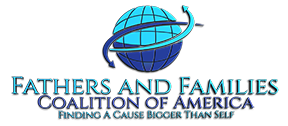Posts
What role do fathers play during pregnancy?
By Jay Fagan, PhD, is a professor emeritus in the School of Social Work at Temple University and former Fatherhood Research and Practice Network co-director.
#HeadStart #ChildDevelopment #EarlyChildhoodEducation #SocialWork #FatherInvolvement #Pregnancy
Let us guide expectant fathers to understand their role during pregnancy. This blog is an excerpt from the 2024 release of " Fathers and Children Together: A Guide to Developing a Parenting Identity and Supporting Your Child," written by Dr. Jay Fagan, a Professor Emeritus in the Temple University School of Social Work and former Fatherhood Research and Practice Network Co-director. Dr. Fagan's research has focused on father-child relationships and co-parenting in nonresidential and low-income families; responsible fatherhood programs; parenting interventions for low-income mothers and fathers; fathers with children in Head Start and child welfare; and adolescent fathers. Jay's most recent book," Fathers and Children Together: A Guide to Developing a Parenting Identity and Supporting Your Child, " co-authored with Dr. Glen Plam, was published by Routledge in October 2024. He has published four books and many peer-reviewed research papers, mostly on fathers. He was the founding editor of the journal Fathering.

What role do fathers play during pregnancy?
Traditionally, the arrival of a new baby has been seen as the exclusive realm of mothers. However, this perception is evolving. The roles that fathers can play during pregnancy are now recognized as crucial. This is due to the vulnerability of the unborn child and the shift to a new co-parenting relationship with the child's mother that begins during pregnancy.
Jay and Glen discuss the importance of fathers during pregnancy in the second chapter of their book, Father and Children Together.
Preparing for Fatherhood: Most fathers want to learn about pregnancy, prenatal development, and childbirth. They want to know what mothers should or should not eat or drink to keep the unborn baby safe. They want to understand mothers’ hormonal and physical changes and discomfort during pregnancy. They want to be supportive during labor and possible complications during childbirth. Researchers have found that knowledge about pregnancy and childbirth helps fathers to feel supported and calm and improves satisfaction. Men also benefit from support to manage their anxieties and understand the challenges and rewards of becoming an involved father.
Fathers’ Participation in Prenatal Care: Fathers are not just interested, but their participation in prenatal care sessions is empowering. It helps them understand prenatal development better and leads to better pregnancy outcomes, improved maternal health, and increased father-infant bonding. Their desire for providers to be more direct and specific with important information is a sign of their commitment to being well-informed.
Supporting the Mother: Fathers play a critical role in supporting mothers during pregnancy. Their presence at prenatal visits, help to prepare the home for the baby's arrival, and willingness to take on additional housework when the mother is tired or feeling overwhelmed are not just deeply reassuring, they are deeply appreciated. Their support and understanding are not just helpful; they are calming influences that make the journey smoother for the mother.

Bonding With the Unborn Baby: Pregnancy is a time when your emotional bond with your child begins to form. Your interactions with your 'imagined' baby are not just a way to pass the time, they are crucial for the development of your relationship. Research shows that fathers who are more emotionally engaged with the unborn child tend to interact more positively with their infants. This emotional connection is not just a nice-to-have, it's a responsibility that you are already fulfilling.
Expectant Fathers’ Contributions to a Healthy Birth. The Centers for Disease Control report that men’s smoking can also result in fertility problems by damaging sperm and contributing to impotence. Fathers’ smoking during pregnancy also contributes to poor health in the baby, including lower mean birth weight, mean length at birth, and mean birth head circumference.
Building a New Identity as a Father: Many fathers self-reflect during pregnancy. This self-reflection can include making a commitment to become an involved father, deciding how to prioritize work, becoming a good provider, and becoming a supportive co-parent. It may also include prioritizing one's relationship with the expectant mother and downplaying one's relationship with friends in favor of being an involved father and co-parent.
Building a Parenting Partnership: Expectant fathers prepare for fatherhood by establishing a co-parenting relationship with the child’s mother. Co-parenting, which involves parents working together to meet the child's needs, is a crucial aspect of effective parenting. Fathers and mothers may talk about the child’s name, whether or not the mother will breastfeed, budget for how much will be spent on baby furniture and clothing, involve in-laws and other relatives in caregiving, share parenting responsibilities, work commitments, and work and family balance.
Reflection questions
Fathers and Children Together includes many self-reflection questions for fathers. Sample questions include:
- What kind of relationship do I hope to create with my child?
- What values guide me as I seek to be an involved father?
- Where can I talk about my feelings, worries, and concerns as an expectant father?
Sources and Further Reading
Fathers and Children Together: A Guide to Developing a Parenting Identity and Supporting Your Child. https://www.routledge.com/Fathers-and-Children-Together-A-Guide-to-Developing-a-Parenting-Identity-and-Supporting-Your-Child/Fagan-Palm/p/book/9781032779591?srsltid= AfmBOoogEOewOuBqqH1O0SiQtGB-NBELQ8aM2oMtqIYR35bKgMz7nfcD
Centers for Disease Control. (2014). Smoking and reproduction. www.cdc.gov/tobacco/sgr/50th-anniversary/pdfs/fs_smoking_reproduction_508.pdf


